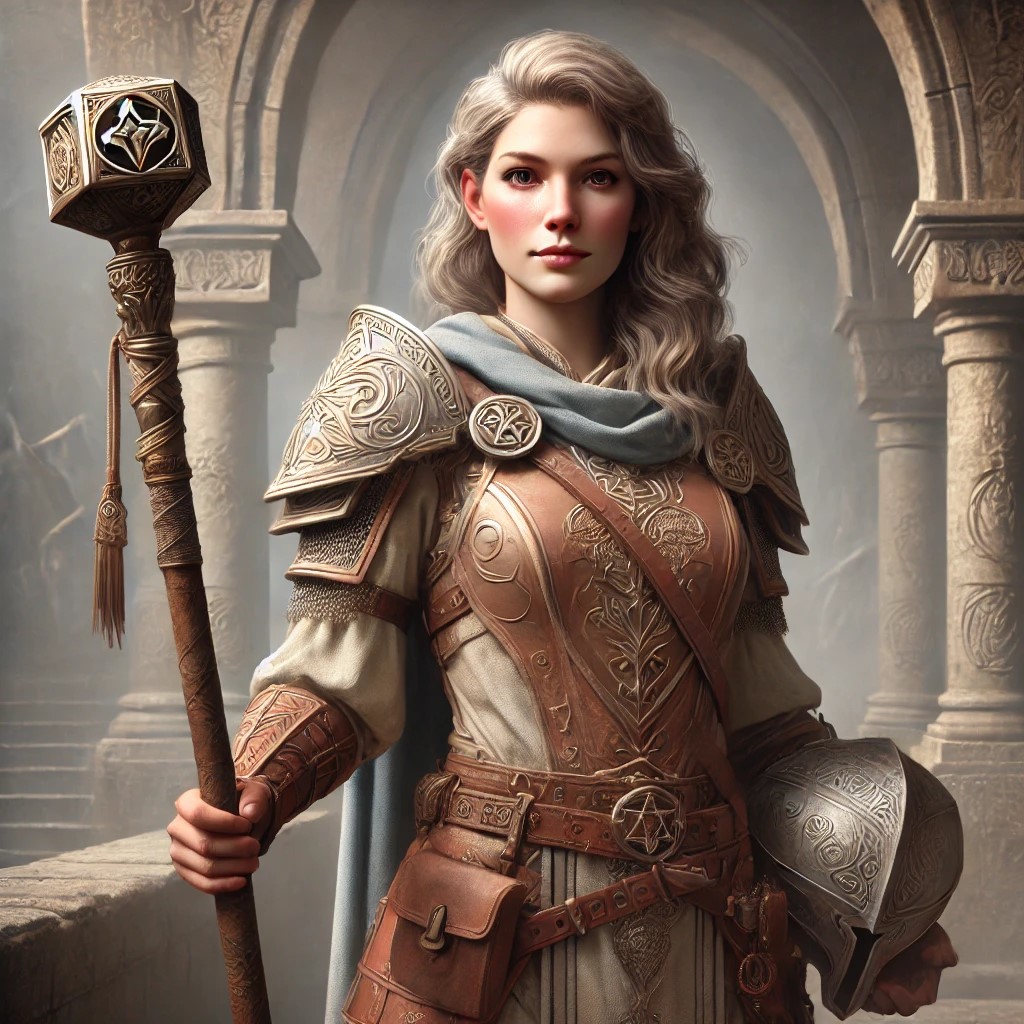Cleric (class)
Clerics are religious leaders and therefore part of whatever power structure their belief incorporates. Knowing this, players should be careful when choosing which religion their cleric will follow. Obscure, scattered religions will have little oversight but, in turn, offer minimal support for the cleric's needs. On the other hand, widespread ruling religions will be demanding but can provide significant boons and benefits.
Contents
Major religions include Christianity (Catholicism, Orthodox, Protestant, etc.), Islam (Sufism, Shiism), Buddhism, Hinduism, Taoism, Shintoism, Judaism, Zoroastrianism, Celtic, Mayan and other American cultures, Greco-Roman, Babylonian/Sumerian and so on. Each religion carries a variety of traditions and requirements, too many to list here. Presumably, a character will choose a religion they are interested in researching and playing.
A cleric's primary purpose in any religion is to "spread the word" while urging others to renounce their belief in "false" gods. Every belief system has a faction that believes this is best done through murder, another through proselytisation, another through emotional competition, and a fourth that sees no need to be concerned with non-believers. While other factions exist, these four are consistent and will be found nearly everywhere. The player should decide what stance their character takes on this matter.
The player character is free to choose how best to carry forth their god's wishes. Within a D&D setting, violence carries the day — so players wishing to do missionary work with a weapon in hand shouldn't be harshly restrained but will likely find others who share their outlook.
For further detail about clerical religion, see religious philosophy.
To Become a Cleric
The primary attribute of the cleric is wisdom. Clerics may be dwarves, elves, gnomes, half-elves, half-orcs and human.
To become a cleric, a character must have these minimum ability stats:
- 6 strength
- 6 intelligence
- 9 wisdom
- 6 constitution
- 6 charisma
| Level | Max. X.P. | HD | Level Title |
|---|---|---|---|
| 1st | 0 | 1 | acolyte, almoner, cantor, missionary |
| 2nd | 1,501 | 2 | adept, deacon, lector |
| 3rd | 3,001 | 3 | brahmin, chaplain, curate, rector |
| 4th | 6,001 | 4 | friar, imam, pastor, priest, rabbi |
| 5th | 13,001 | 5 | abbey, archdeacon, prefect |
| 6th | 27,501 | 6 | abbot, canon, exarch, mufti |
| 7th | 55,001 | 7 | lama, pontiff |
| 8th | 110,001 | 8 | bishop, patriarch |
| 9th | 225,001 | 9 | grand lama, high bishop, high priest |
| 10th | 450,001 | 9+2 | lord bishop |
| 11th | 675,001 | 9+4 | lord high bishop |
| 12th | 900,001 | 9+6 | archbishop, cardinal |
Multi-classed clerics must have a minimum wisdom of 15. To gain a +10% experience bonus, the cleric must have a minimum wisdom of 16. The table shown describes the necessary experience to claim each level of the cleric, gaining hit dice and further abilities. Each level above 12th requires 225,000 additional experience. Clerics gain 2 hit points per level above 9th, but as this is not an increase in hit dice, further constitution bonuses are not accrued. Clerics cannot progress beyond 29th level.
Clerics receive cleric spells at each level. They also possess unique combat abilities and sage abilities. Players wishing to become a cleric should familiarize themselves with these characteristics.
Cultural Relevance
Clerics serve as intermediaries between the divine and the mortal world, acting as spiritual guides, enforcers of doctrine and sources of wisdom. Depending on their faith, they may function as healers, judges, warriors or mystics, each fulfilling a role that aligns with their deity's expectations. Many clerics are bound by strict codes of conduct, which can influence their behaviour in ways beyond simple moral alignment — dictating what they wear, what they eat, where they travel and how they interact with non-believers.
Beyond their religious obligations, clerics often wield considerable political influence. In cultures where religion dominates governance, they may serve as advisors to rulers, administrators of law or the heads of entire theocratic states. Their ability to rally followers, interpret omens and invoke divine power grants them an authority that transcends mere secular leadership. However, this influence comes with scrutiny, as heresy, corruption or deviation from doctrine can lead to exile, excommunication or execution, depending on the rigidity of the faith in question.
See also,
Clerical Spell Tables
Player Characters
Turn Undead (sage ability)
